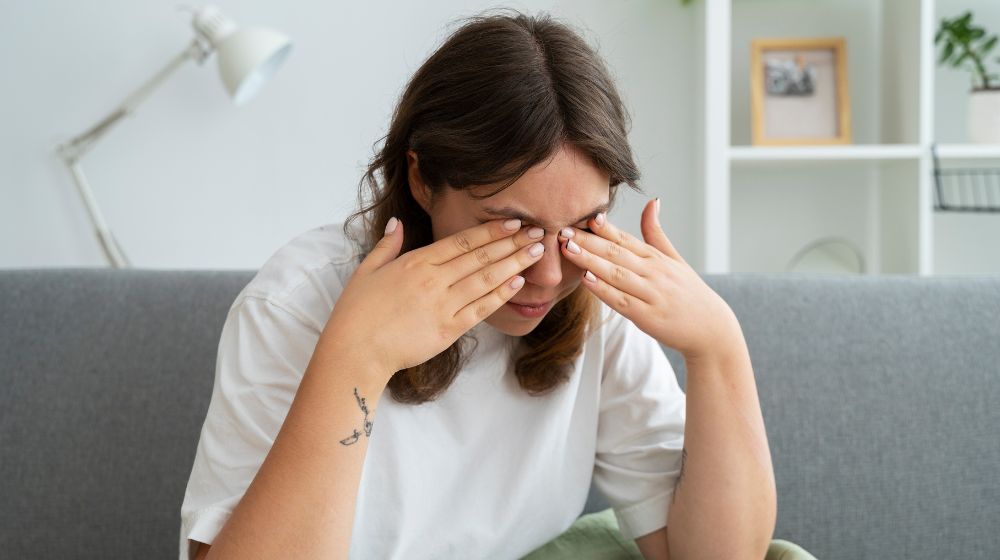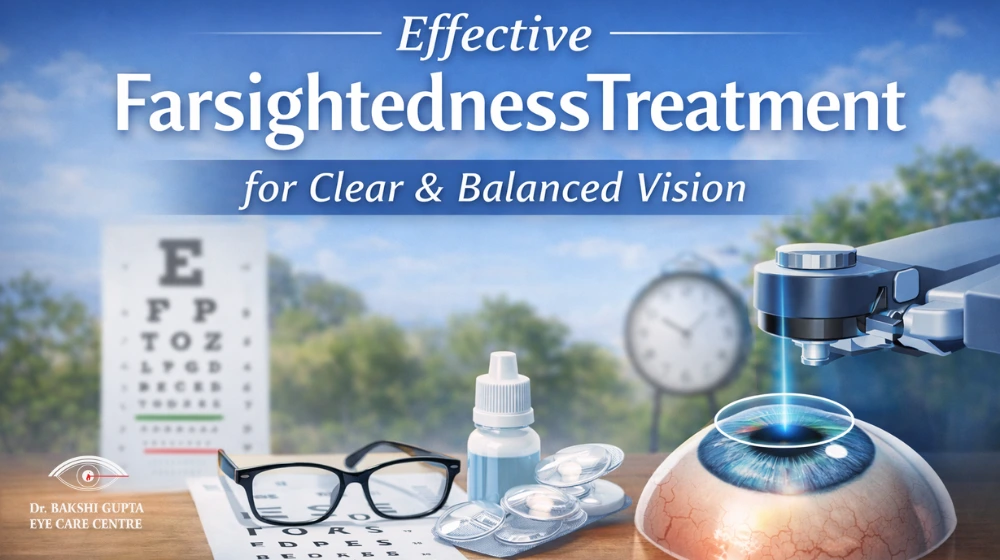Eye irritation is something almost everyone experiences at some point. It may start as mild itching or redness but can quickly turn uncomfortable if not addressed. Understanding the causes, symptoms, and remedies for eye irritation is essential to keep your eyes healthy and prevent long-term problems.
In this complete guide, we’ll look at the common eye irritation causes, how to identify eye irritation symptoms, and the most effective eye irritation treatment options available.
Common Causes of Eye Irritation
- Allergies
Seasonal allergies or exposure to dust, pollen, and pet dander can make your eyes itchy, watery, and swollen. - Dry Eyes
Spending long hours on screens reduces blinking, which can dry out your eyes, causing burning or stinging sensations. - Infections
Conditions like conjunctivitis (pink eye) often lead to redness, irritation, and discharge. - Contact Lenses
Wearing lenses for too long or not cleaning them properly can cause eye irritation. - Environmental Factors
Smoke, pollution, or harsh chemicals can trigger irritation and discomfort. - Skin Issues
Sometimes, it’s not just the eyes but also irritated skin around eyes that contributes to discomfort, often caused by eczema, allergies, or reactions to skincare products.
Eye Irritation Symptoms to Watch Out For
Recognizing eye irritation symptoms early can help you treat the issue effectively. Some common signs include:
- Redness or bloodshot eyes
- Itching or burning sensation
- Watery eyes
- Sensitivity to light
- Swelling of eyelids or skin around the eyes
- Discomfort when wearing contact lenses
If these symptoms persist, it’s important to seek professional help. Sometimes, persistent irritation could indicate a more serious eye condition.
Effective Eye Irritation Remedies at Home
Mild irritation can often be managed with simple eye irritation remedies. Here are some options:
- Cold Compress
Applying a clean, cold washcloth over your eyes can reduce redness, swelling, and provide quick irritated eye relief. - Artificial Tears
Over-the-counter lubricating eye drops can help if your irritation is due to dryness. - Clean Environment
Keeping your living space dust-free and using an air purifier can help prevent allergy-related irritation. - Proper Screen Habits
Follow the 20-20-20 rule (every 20 minutes, look at something 20 feet away for 20 seconds) to reduce digital eye strain. - Avoid Rubbing Your Eyes
Rubbing may worsen irritation or even introduce infection.
Medical Eye Irritation Treatment Options
While home remedies work for mild cases, sometimes professional care is necessary. Some treatment options include:
- Antihistamine Drops: For allergy-related irritation.
- Antibiotic Drops: For bacterial infections like conjunctivitis.
- Prescription Lubricants: For severe dry eyes.
- Corticosteroid Creams: For managing irritated skin around eyes caused by eczema or allergic reactions.
If your symptoms are persistent or severe, it’s best to consult specialists. For advanced care, you may consider visiting the best eye hospital in Panchkula, where expert ophthalmologists can guide you with the right treatment plan.
When to See a Doctor
You should seek immediate medical help if you notice:
- Severe pain in or around the eyes
- Sudden vision changes
- Persistent redness or swelling
- Yellow or green discharge
- Sensitivity to light that doesn’t go away
These could be signs of more serious conditions that need professional treatment.
Preventing Eye Irritation
Prevention is always better than cure. Here are some simple tips to reduce the chances of experiencing eye irritation:
- Wear sunglasses outdoors to protect from UV rays and dust.
- Wash your hands regularly before touching your eyes.
- Maintain proper lens hygiene if you wear contact lenses.
- Avoid using expired or poor-quality eye makeup.
- Take regular breaks from screens.
Conclusion
Eye irritation is a common problem, but it doesn’t have to disrupt your daily life. By understanding the eye irritation symptoms and using the right eye irritation remedies, you can often find quick relief. For persistent cases, professional eye irritation treatment is the safest option.
Whether it’s allergies, dryness, or infections, paying attention to your eye health is important. If you’re facing ongoing discomfort, don’t ignore it—consider visiting the best eye hospital in Panchkula to ensure your eyes get the expert care they deserve.
FAQ
1. What are the common causes of eye irritation?
Eye irritation is often caused by allergies, dry eyes, infections, contact lenses, or exposure to dust, smoke, and chemicals.
2. What are the symptoms of eye irritation?
The most common eye irritation symptoms include redness, itching, burning, watery eyes, swollen eyelids, and sensitivity to light.
3. How can I get quick relief for irritated eyes?
A cold compress, artificial tears, and avoiding rubbing your eyes are simple eye irritation remedies that provide fast relief.
4. When should I see a doctor for eye irritation?
Seek medical help if you experience severe pain, vision changes, green/yellow discharge, or persistent redness and swelling.
5. What is the best treatment for irritated skin around eyes?
For irritated skin around eyes, mild cases can be managed with gentle moisturizers, while severe cases may require prescription creams.





